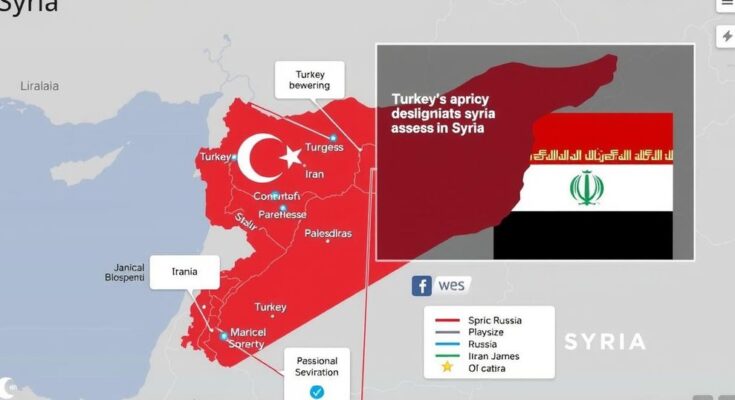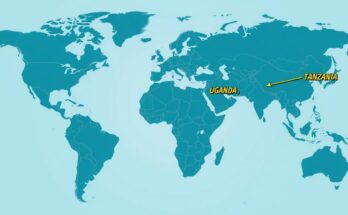The ongoing Syrian civil war has seen a significant shift with the ousting of President Bashar al-Assad, leading to Turkey being perceived as the biggest winner, while Iran and Russia face substantial losses. The negotiations between Hayat Tahrir al-Sham and Turkey, particularly regarding the Kurdish issue, will be critical in determining future developments in Syria.
The civil war in Syria, which has persisted since 2011, has shifted dramatically following the ousting of the Assad regime. The recent seizure of Damascus by armed rebel factions led by Hayat Tahrir al-Sham (HTS) significantly alters the political landscape, prompting President Bashar al-Assad to flee the country, reportedly arriving in Moscow with his family. According to military analysts and experts in France, as reported by VOA Turkish, Turkey emerges as the primary beneficiary of this upheaval, while Iran and Russia are identified as the primary casualties of these developments. However, the outcome of negotiations between HTS and Turkish authorities, particularly concerning the Kurdish issue, is said to be crucial for the future trajectory of the region.
Since its onset in 2011, the Syrian civil war has drawn in various international and regional powers, each pursuing divergent interests. Turkey, under President Recep Tayyip Erdoğan, has consistently sought to counter the influence of Kurdish groups along its southern border, while Russia and Iran have been instrumental in supporting the Assad regime. The recent changes in power dynamics present an opportunity for Turkey to enhance its regional standing at the expense of its rivals. Understanding these developments requires a grasp of the historical context and strategic implications of foreign involvement in the Syrian conflict.
In summary, the recent developments in Syria mark a significant shift in power, with Turkey positioning itself as the foremost victor, while Iran and Russia have faced considerable setbacks. The forthcoming negotiations between HTS and Turkey will play a pivotal role in shaping the future balance of power in the region, particularly concerning the contentious Kurdish issue. The intricacies of these discussions will likely have enduring consequences for both domestic and international stakeholders involved in the Syrian crisis.
Original Source: www.voanews.com




